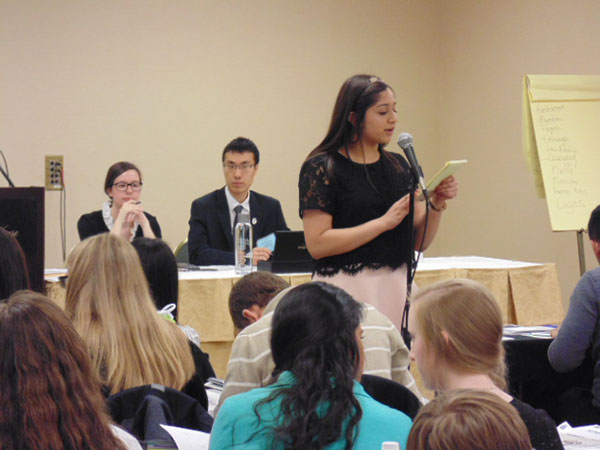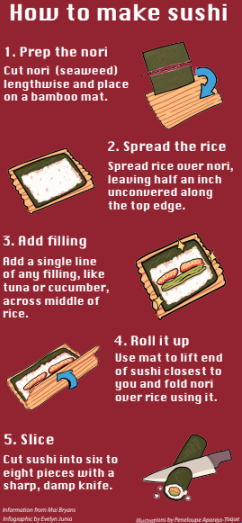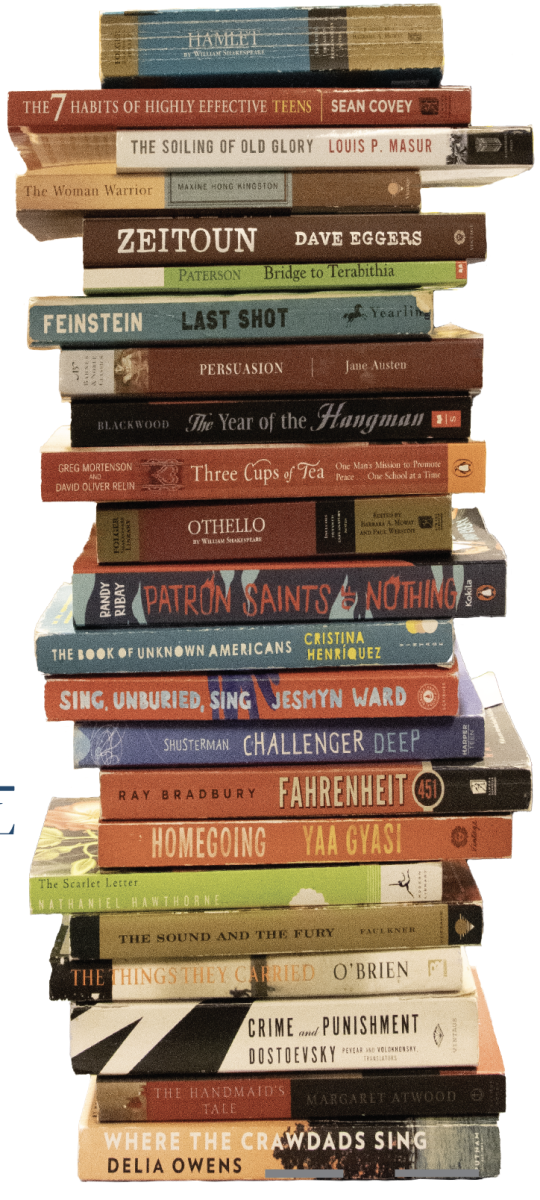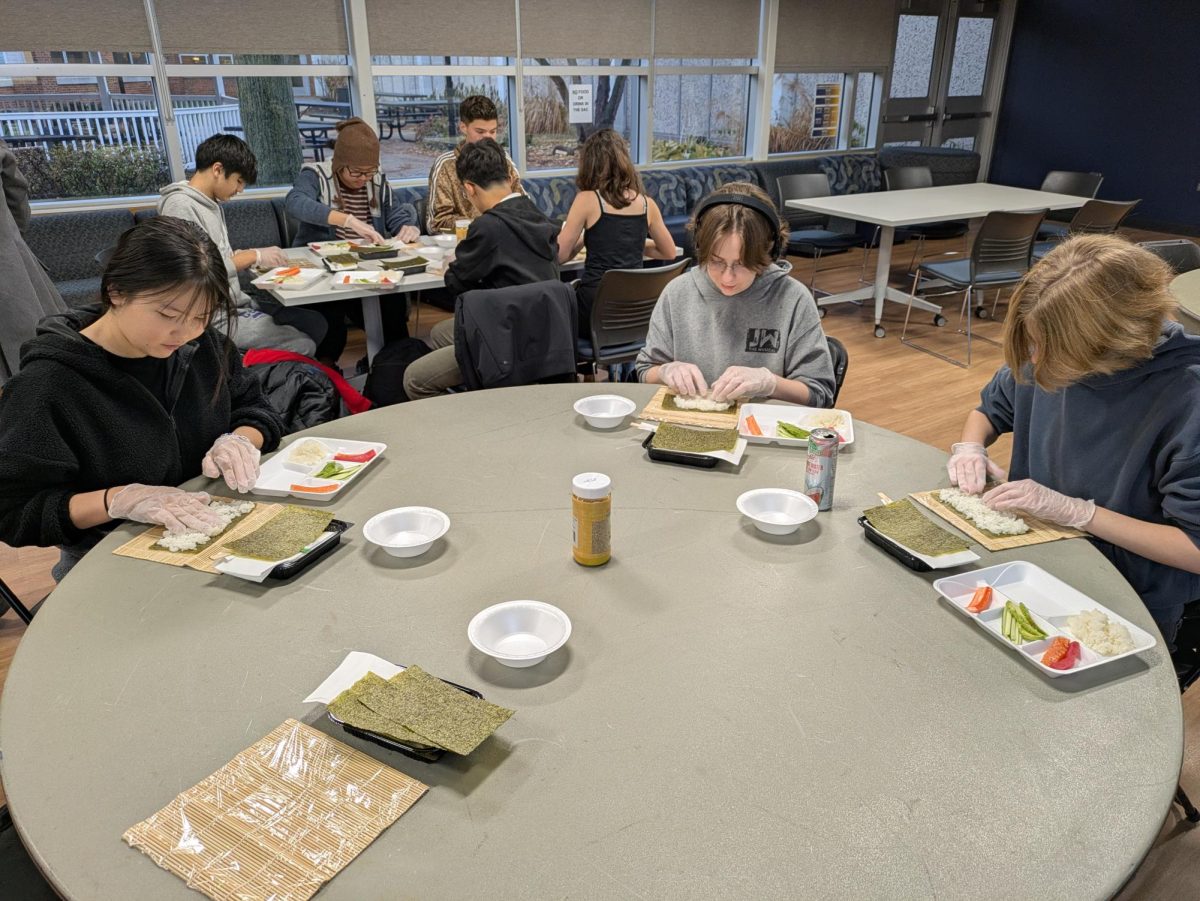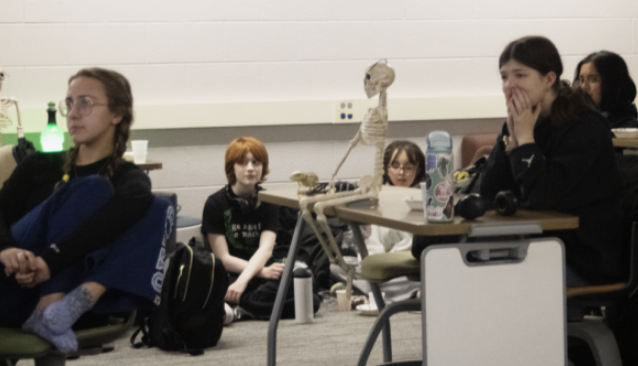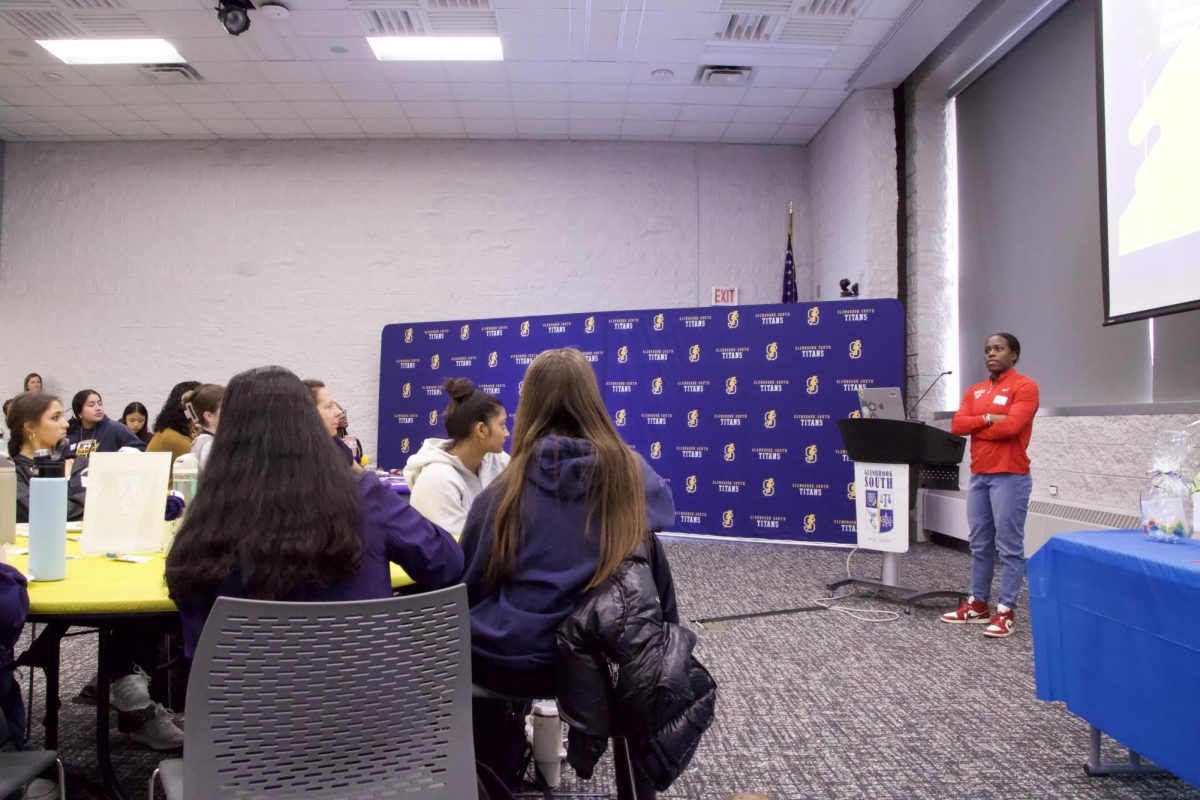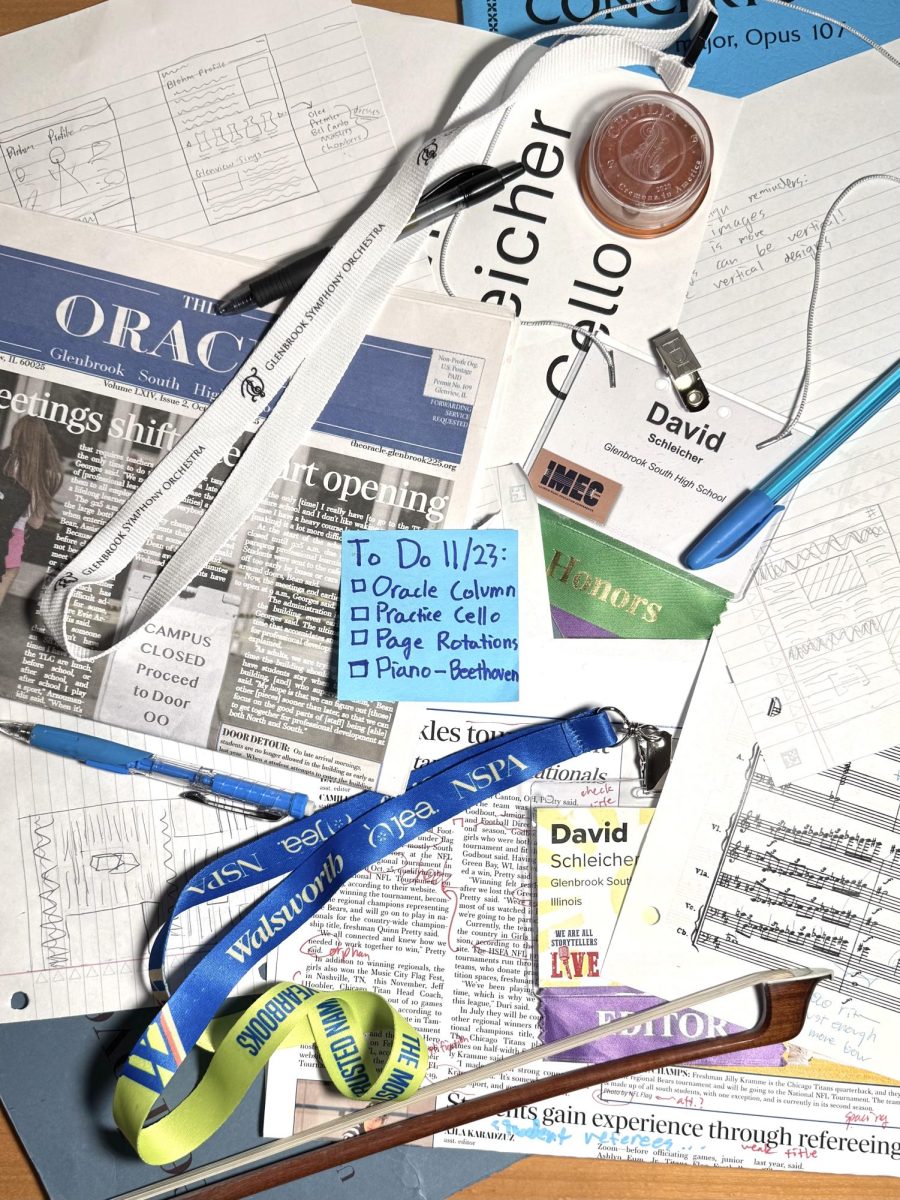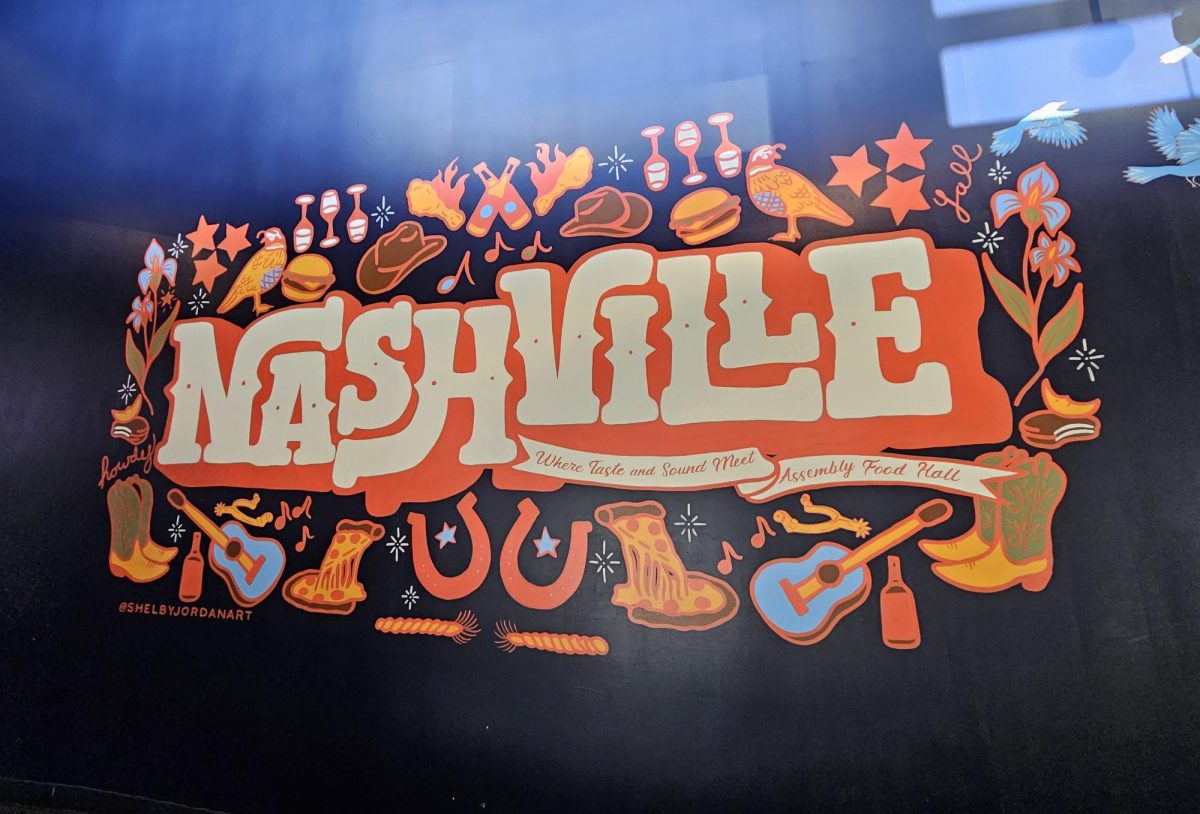By Ivy Zhou, staff reporter
The GBS Model United Nations (MUN) team returned victorious after the MUN conference at the University of Chicago (MUNUC) in 2015 with 30 out of the 35 delegates from GBS winning awards. GBS’ MUN team is stronger than ever this year, according to junior Grace Kilpatrick, but what is their secret?
The MUN team simulates actual UN conferences and gives high school students an opportunity to participate in discussion about world affairs, according to junior Kate Hegay. Senior Billy Kosmidis, who is also the club president, joined the club because of his interest in world affairs.
“My whole family being from Europe, I was really interested in things going on around the world outside the US,” Kosmidis said.
The team competes against other high school MUN teams in conferences hosted by colleges and high schools across the country. Conferences give the team a chance to see what it’s like to participate in an actual UN meeting, and also provides the opportunity to speak in front of an audience, which can sometimes be scary, according to Kilpatrick.
“There’s an exhilaration when you’re arriving at the conference, but obviously before speaking in front of a mass of people can be very nerve-wracking,” Kilpatrick said.
Teams are assigned certain countries and topics, and then form committees within those subgroups. The goal is to represent your country, taking steps that country would actually take in a UN conference, according to Kosmidis. At the end of the conference, a resolution is written, which is a document of the solutions that have been reached.
“The resulting emotion is overwhelmingly confidence and success once you can look back at the work you’ve done over those hours or days and see that you do hold the capability of things you didn’t know that you could do,” Kilpatrick said.
Kosmidis says the club has been doing extremely well the past two years. In 2014, the team won first place in nationals in New York. Additionally, the team won first place in 2015 in Washington D.C. Having been president for two years, Kosmidis says he was able to see what worked and what didn’t from last year.
“I’d say our greatest strength is probably not only that we work hard, but we also play hard,” Kosmidis said. “I can say for sure, this year, we’re one of the closest families that MUN has ever been.”
Of course, hard work is involved in their successes as well, according to Kosmidis. The team begins preparing a month before the conference by researching the topics specific to the UN committee they have been assigned, according to Kilpatrick. However, the research the team needs doesn’t necessarily affect their academics.
“I think as much as MUN requires a lot of preparation, it doesn’t interfere in a lot of school activities,” Kilpatrick said. “I think a lot of times the research required for MUN is absorbed from your everyday environment.”
Not only does being in the club not negatively affect members’ academic lives, but it also has positively influenced the direction of their futures, according to Hegay. Once interested in majoring in a STEM field, she is now considering International Relations as a major. Kosmidis also believes MUN has benefited him greatly.
“It allowed me to appreciate and also celebrate different cultures and ethnicities and really realize the perspectives of different countries around the world,” Kosmidis said. “[MUN] helped me figure out what major I want to do in college.”
Kilpatrick says that MUN has also impacted her life personally, teaching her skills she can use in all areas of her life.
“MUN has taught me as much about myself as it has about the international community,” Kilpatrick said. “It’s taught me the value of cooperation with the team as well as forming friendships with strangers. It’s taught me a lot about the value of confidence, and the value of encouraging teammates.”


